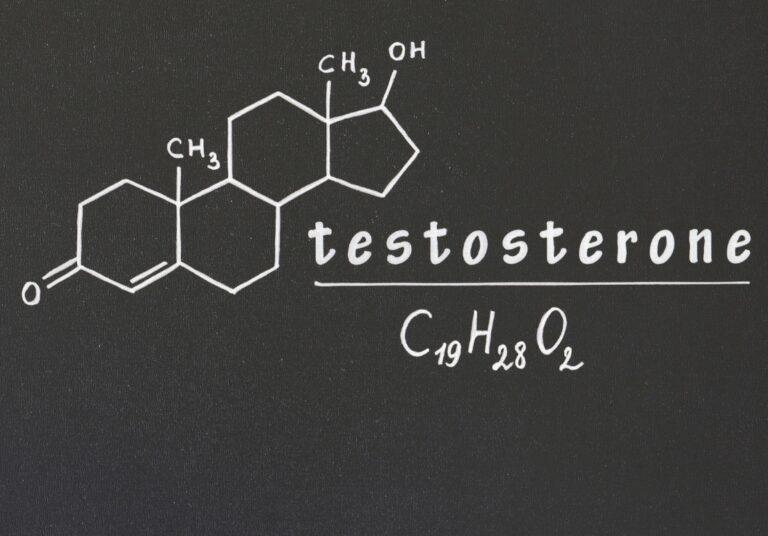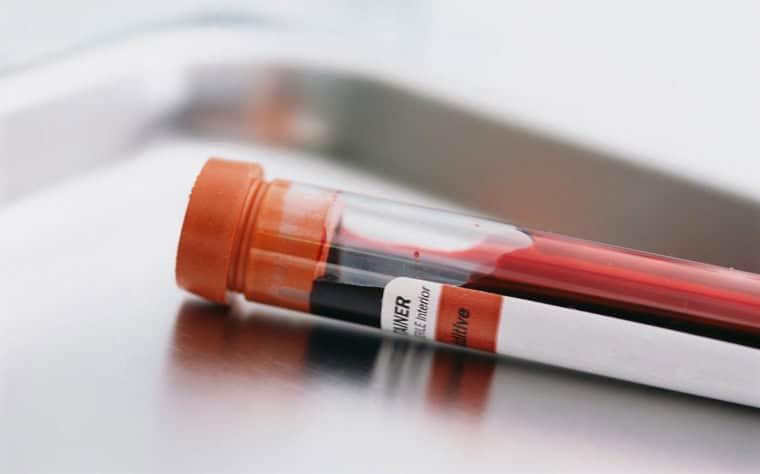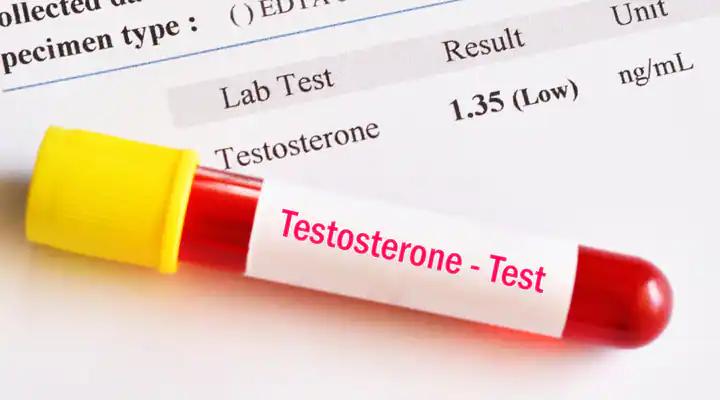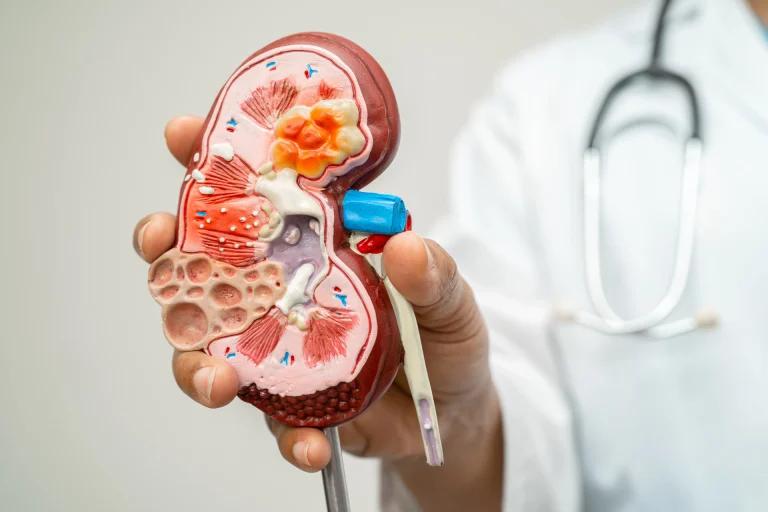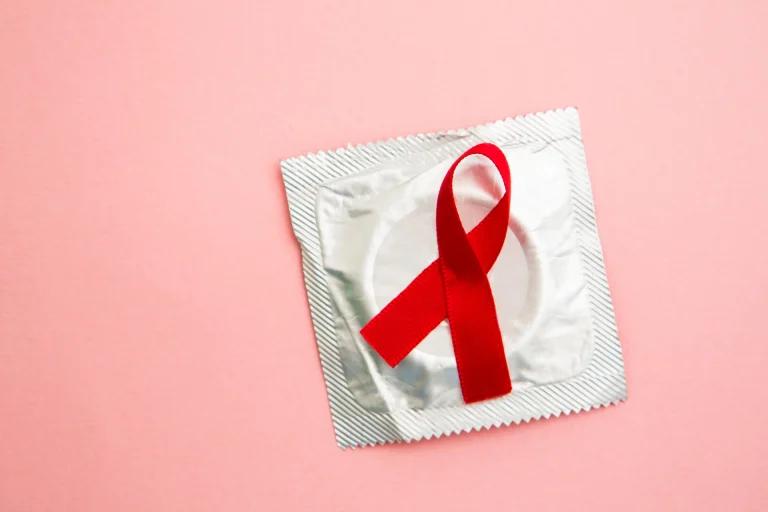

October 15, 2025 (Current Version)
October 15, 2025
March 28, 2025
Testosterone is important for your physical and mental health. If you have low testosterone levels it can cause problems with sex, interfere with your energy levels and your ability to maintain muscle, and it can even lead to depression.
For men with low levels of testosterone, testosterone replacement therapy is an option. It can have side effects as well as benefits, so it’s a treatment to consider carefully. To help you out we’ve got the essential details on what testosterone replacement therapy is, as well as the benefits and side effects it can have.
What is testosterone?
Testosterone is a hormone that both men and women naturally produce. Men make a lot more testosterone – around 7 to 8 times as much as women. It is called a male sex hormone because it’s produced in your testicles and plays a role in the development of a range of male characteristics. Testosterone levels rise in puberty and stimulate the growth of your testicles. They also stimulate sperm production, muscle mass, the deepening of your voice, the growth of body hair and your interest in sex.
It’s not just a male sex hormone though. Testosterone is also involved in a lot of processes in your body and having enough of it helps keep you healthy and happy.
What is low testosterone?
Having low testosterone means your body isn’t producing all the testosterone it needs. Testosterone levels naturally vary as we age. They rise during puberty and decline as we get older – usually after we hit our 40s – but a normal level of testosterone is considered to be between 300 to 1,000 nanograms of testosterone per deciliter of blood (ng/dL). A level below 300 nanograms per deciliter is considered to be a low testosterone level.
Low testosterone won’t affect all men in the same way. Some men won’t see any side effects, but the following are the most common symptoms of low testosterone:
- A low sex drive (libido)
- Problems getting and maintaining an erection (erectile dysfunction)
- Shrinking testicles and reduced sperm production
- A loss of muscle mass
- Gaining fat
- Hair loss
- Fatigue
- Difficulties thinking clearly and problems with memory
- Depression
What is testosterone replacement therapy?
So, how does testosterone replacement therapy (TRT) work? TRT is a treatment for low testosterone. As the name suggests, it works by replacing the testosterone you’re lacking by adding more testosterone to your body.
TRT can come in several forms, including:
- Gels which contain testosterone that you apply to your skin (the testosterone is absorbed through your skin into your blood)
- Testosterone skin patches (again, the testosterone is absorbed through your skin into your blood)
- Testosterone pellets that are surgically implanted under the skin and slowly release testosterone
- Testosterone injections
What are the benefits of testosterone replacement therapy?
TRT can affect men differently. Although the research into TRT is still in its early stages, the reported benefits from men who undergo the therapy include:
- Increased sex drive
- Reduced erectile dysfunction and better-quality erections
- Increase muscle mass
- Decreased insulin resistance, which can help you lose weight
- Increased energy levels
- Improved mood
What are the risks and side effects of testosterone replacement therapy?
Whilst it hasn’t been studied extensively and the long-term risks aren’t known, the more commonly reported testosterone replacement therapy side effects include:
- Causing acne or making existing acne worse
- Causing your testicles to shrink and lowering your sperm production
- Making you develop breasts (gynecomastia)
- A worsening of sleep apnea if you already have it
- An increased risk of blood clots (blood solidifying in your blood vessels and blocking them) which can cause hearts attacks and strokes
- A non-cancerous growth of your prostate gland (benign prostatic hypertrophy) that can make it difficult to urinate
- Faster growth of existing prostate cancer
How long does it take for TRT to work?
The length of time it takes for TRT to work will vary from man to man. It can depend on your testosterone level, the type of TRT you have, how you respond to the treatment and any other medical conditions you have. On average some benefits can be seen from around 3 to 4 weeks, although it can take 18 to 30 weeks to feel the maximum benefit.
Is testosterone replacement therapy for me?
Testosterone replacement therapy does appear to have benefits for some men. However it also carries risks and can cause side effects, so it isn’t for everyone. You should only consider it if you know you have low testosterone levels and you have symptoms caused by low testosterone. There’s plenty of misinformation online that claims men with healthy levels of testosterone can benefit from taking more, but this isn’t supported by science. Most likely you’d experience no benefits, but you’d still put yourself at risk of side effects.
If you think you have low testosterone levels and you’re interested in TRT you should talk to your doctor. They can arrange for your testosterone levels to be tested and can discuss the pros and cons of TRT to help you decide if it’s suitable for you.
Can testosterone help with erectile dysfunction?
Erectile dysfunction (ED) is when a man can’t get or keep an erection that’s hard enough for sex. ED can be caused by low testosterone, but it also has a wide range of other potential causes, both physical and mental.
If your ED is caused by low testosterone TRT may help. If your ED isn’t caused by low testosterone however, then TRT isn’t the answer you’re looking for. Talk to your doctor if you are worried about ED. They can begin the process of finding out what’s causing it so you can get the most suitable treatment.
If you have ED your doctor may recommend an erectile dysfunction medication like Viagra. If you’re interested in trying one of these you can order them directly NowPatient after an online consultation. The ED medications we offer are:
- Sildenafil (Viagra)
- Tadalafil (Cialis)
- Vardenafil (Levitra)
You can request an online consultation and we’ll get things started.
Sources
Medical Disclaimer
NowPatient has taken all reasonable steps to ensure that all material is factually accurate, complete, and current. However, the knowledge and experience of a qualified healthcare professional should always be sought after instead of using the information on this page. Before taking any drug, you should always speak to your doctor or another qualified healthcare provider.
The information provided here about medications is subject to change and is not meant to include all uses, precautions, warnings, directions, drug interactions, allergic reactions, or negative effects. The absence of warnings or other information for a particular medication does not imply that the medication or medication combination is appropriate for all patients or for all possible purposes.





